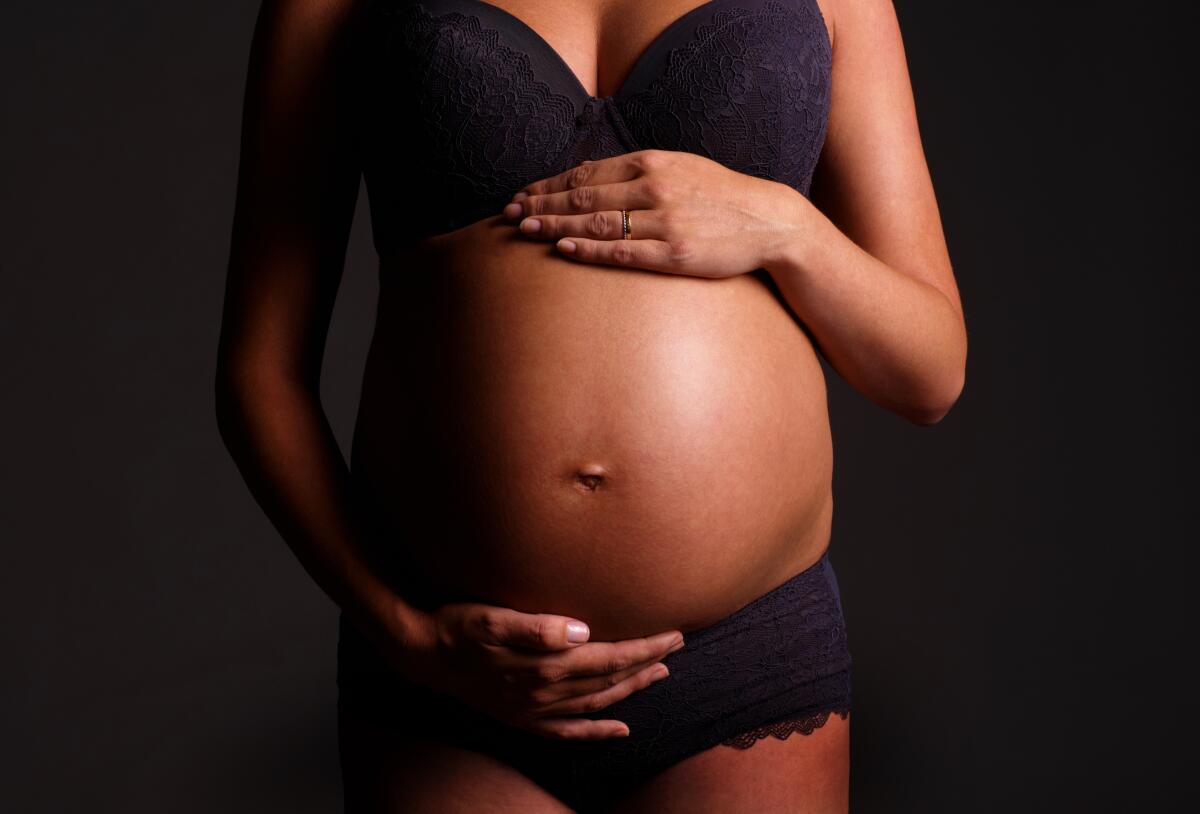Editorial: Black new mothers are dying at unacceptably high rates. We have to confront that

- Share via
Childbirth has always been perilous for women. Before the advent of modern medicine, a breech birth was often a death sentence. And even as recently as the turn of the 20th century, six to nine women in the U.S. died during childbirth or from related complications for every 1,000 babies born alive, according to the Centers for Disease Control and Prevention.
Advances in medicine and public health have significantly improved the odds that women — and their infants — will survive childbirth. In 2019, the most recent year for which there are data, only two women died for every 10,000 or so live babies born. That’s quite an improvement in little more than a century. Nevertheless, the U.S. still has the highest rate of maternal mortality in the industrialized world, and the rate has been creeping up in recent years.
In addition, the progress on maternal health hasn’t been equally shared. Black women in the U.S. are more than twice as likely to die from pregnancy-related conditions as other women. In California, which has a lower rate of maternal death than the country as a whole, the disparity is even wider for Black and Indigenous women; in recent years, they have died from complications of childbirth at three to four times the rate of white women. The racial disparity remains even when there’s no difference in income or educational attainment.
What’s worse is that most of the women could have lived if they’d had better access to proper medical care during childbirth and in the weeks and months that followed, when they are at risk for hemorrhage, infection and birth-related cardiovascular conditions.
The reasons maternal death is higher among women of color aren’t difficult to guess: Centuries of economic and institutional racism have limited their access to healthcare and shaped their treatment by the medical establishment. No piece of legislation, no matter how comprehensive, could change that overnight. But lawmakers can tackle some of the economic factors and their health side effects.
To that end, congressional Democrats are pushing a package of bills aimed at improving maternal health for Black women. Advocates in California, however, are not counting on the federal legislation; they’re pushing their own “momnibus” proposal, Senate Bill 65. The name is a bit hokey, but it does sum up the comprehensive nature of the measure, which takes an everything-but-the-kitchen-sink approach to reducing maternal death among Black and Indigenous women in California.
Here’s some of what the bill proposes: extending Medi-Cal eligibility for 12 months after childbirth, up from the current 60 days; requiring Medi-Cal to pay for doulas — professional advocates for, and supporters of, women through pregnancy, birth and the postpartum period who’ve been shown to improve maternal health; trying out a guaranteed income program for low-income women that begins during pregnancy and ends two years after childbirth; improving data collection on maternal and infant mortality; and increasing the welfare benefit that CalWorks pays to pregnant participants. There are other sensible changes, but those are the big-ticket items.
A mountain of research supports the underlying goal of the proposal. Not only do pregnant women need access to quality healthcare, but they also need the means to get to medical appointments, have stable housing, eat healthy food and cover the added expenses of new motherhood, such as diapers and cribs.
Three of the provisions in the bill — the extension and expansion of Medi-Cal benefits and the guaranteed income pilot — are included in the revised budget proposal that Gov. Gavin Newsom submitted to the Legislature last week. That’s good, and lawmakers ought to see that those items remain in the final budget, as well as the balance of proposals in the momnibus bill. If we have the means, then we have a moral obligation to protect new mothers and their infants from needless death.
More to Read
A cure for the common opinion
Get thought-provoking perspectives with our weekly newsletter.
You may occasionally receive promotional content from the Los Angeles Times.










